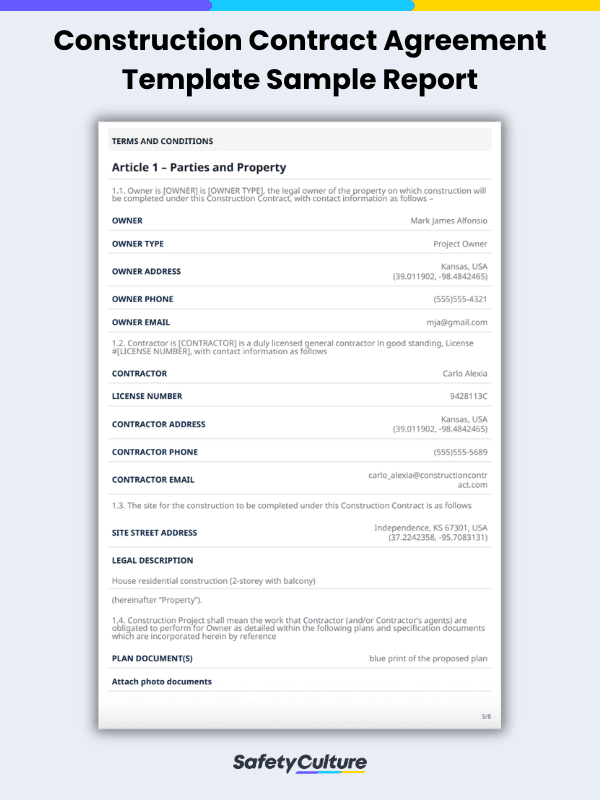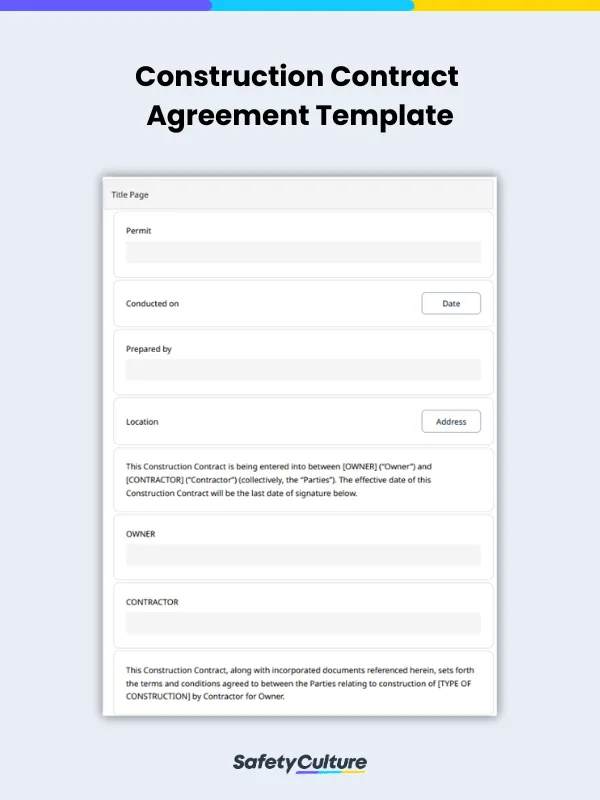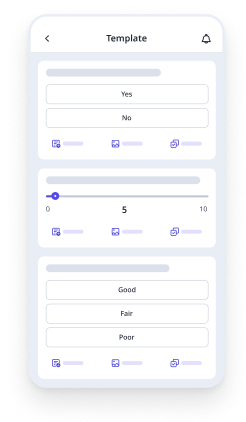Published 26 Sept 2025
Article by
5 min read
What is a Construction Contract Template
A construction contract template is used by contractors and subcontractors to document the agreement between their companies and project owners. It set forth the legally binding terms and conditions agreed between parties including the scope of work, liabilities, budget costs, construction risks, and payment terms.
Importance of Construction Contract Agreement
A written contract agreement prevents any verbal transactions and requests within construction projects. It serves as evidence of an agreement between parties to avoid lawsuits in case of an incident. It clearly defines the policies, construction costs, and liabilities of each party of the contractual agreement that they have to adhere to. Also, it can prevent any forced payment for damaged properties and built-up construction costs without the project owner’s approval.
Details of the Contract Agreement for Construction Work
To ensure smooth transactions between contractors and project owners, a contract agreement for construction work should be validated by both parties. A detailed construction contract agreement would help settle the negotiation. The following are the important details of the contract agreement for construction work.
Scope of work
It is vital to identify the scope of construction work to keep projects within agreed-upon boundaries. It helps identify the inclusions and exclusions of the services within the construction project and serves as an outline of the critical details including procurement elements, deliverables, tasks, manpower, materials, cost, and timeline of the construction projects. It helps manage the client’s expectations and establish project deliverables and workers’ responsibilities.
Payment Schedule
It is important to clarify the payment schedule and terms of compensation between contractors and project owners. Payments can be made on a daily, weekly, or monthly basis depending on the terms of the agreement. It should also specify the payment due dates, late payment penalties, accrued interest, and other applicable situations related to budget costs and invoicing terms. This is to also avoid additional incurred expenses for the project.
Timeline
A contract agreement for construction work should define how the project schedule will be divided according to the total number of working days and the projected deadline to finish the construction. It should vary depending on the manpower, amount of work, and availability of materials. All changes that occur during the construction can be added to the timeline.
Contingencies
A contingency plan should be in place to avoid any disagreements or disputes between contractors and project owners. It should include the details of the governing laws, lien requirements, claims procedures, arbitration procedures, insurance, and liquidated damages.
3 Basic Types of Construction Contract
Construction contract depends on the needs of the project owners. The following are the basic contract types for construction.
Lump sum Contract
A lump sum contract or also known as a stipulated sum contract is the most common contract agreement for construction work. It involves a single payment transaction with a fixed price to build the project within the agreed schedule and scope of work. It is used when the project owner wants to transfer liabilities to the contractor and avoid change orders for unspecified work.
Cost-plus Contract
A cost-plus contract is a negotiation that allows the project owner to pay for all the costs associated with the construction project including materials and labor costs with the additional agreed-upon fee for the contractors. It is usually used when the scope of the construction project is not clearly defined.
Unit Price Contract
The unit price contract is based on estimated quantities of items and their unit prices. The cost is based on the agreed price for every unit of work including the number of working hours and the type of construction materials.
What to Include in a Construction Contract Template
A construction contract agreement checklist ensures that all critical aspects of the project are clearly outlined, reducing the risk of misunderstandings or disputes. When preparing your checklist, be sure to include the following key components:
Owner and Contractor Information – Include the full legal names, addresses, and contact details of both parties. This ensures accountability and facilitates communication throughout the project.
Relevant Documentation – Attach all necessary supporting documents such as project plans, permits, specifications, and any prior agreements. These provide clarity on the scope and requirements of the work.
Project Costs and Financing Conditions – Clearly specify the total project cost, payment schedule, and any financing terms. This section should address deposits, progress payments, and final payment upon completion.
Project Duration and Schedule – Outline the expected start and end dates, along with any critical milestones. Include provisions for extensions due to delays or unforeseen circumstances.
Insurance Requirements – Detail the types and amounts of insurance coverage required for the project, including liability, property damage, and workers’ compensation.
Signatures and Report Generation – Provide space for both parties to sign the agreement, confirming mutual consent. Include an option to generate a finalized PDF report for record-keeping and legal reference.

Construction Contract Agreement Template Sample Report | SafetyCulture

Still looking for a checklist?
Search, filter, and customize 60,000+ templates across industries and use cases.

